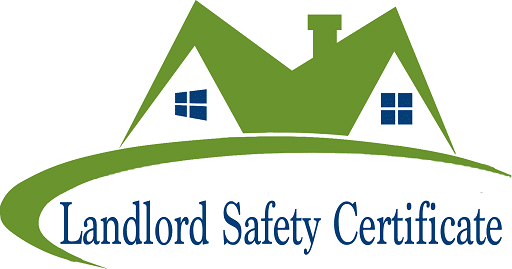
Renting out a property in the UK isn’t just about handing over the keys and collecting rent. This article is your complete guide to understanding landlord safety legal requirements and navigating UK rental safety law with confidence.
Landlords must comply with a range of landlord safety legal requirements and rental safety laws to keep tenants safe and stay on the right side of the law. In this guide, we break down all the legal responsibilities landlords face—from pre-tenancy checks to ongoing safety obligations—so you can confidently manage your rental property.
Being a landlord comes with great responsibility. Beyond providing a habitable home, you are legally required to ensure that your property meets specific health and safety standards. Failure to comply with these obligations could result in heavy fines, bans from letting properties, or even criminal charges. But don’t worry—once you understand the requirements, staying compliant becomes much easier.
Complying with landlord safety legal requirements ensures your property is safe, legal, and appealing to high-quality tenants.
Before your tenant moves in, there are a few legal boxes you must tick:
You are legally required to check the immigration status of all adult tenants. This is called a Right to Rent check. You must verify that your tenants have the legal right to live in the UK and keep copies of their documents.
Every rental property must have a valid EPC rated E or above. This shows how energy-efficient the home is. You must provide a copy to prospective tenants before they sign the agreement.
If your property has gas appliances, a registered Gas Safe engineer must inspect them annually. You’ll need to provide a Gas Safety Certificate before a new tenancy begins and every 12 months afterward.
This certificate confirms that your electrical systems are safe. A qualified electrician must perform an EICR at least every five years, and the report must be shared with tenants.
Once tenants move in, your legal responsibilities don’t stop.
To stay aligned with landlord safety legal requirements, ensure these responsibilities are regularly reviewed and documented.
• Smoke alarms must be on every floor used for living.
• Carbon monoxide alarms are mandatory in any room with a solid fuel-burning appliance, and from October 2022, also required near gas boilers.
Legionella is a bacteria that can grow in water systems. Although there’s no legal obligation for a professional test, you must assess the risk and take simple precautions like flushing unused pipes or maintaining water tanks.
Under the Landlord and Tenant Act 1985, you must maintain:
• The structure and exterior of the property
• Heating and hot water systems
• Sanitary installations like sinks and toilets
• Electrical wiring
If you take a deposit, it must be placed in a government-approved tenancy deposit scheme (TDP) within 30 days. You must also provide “Prescribed Information” to your tenant.

Many local councils in London require landlords to register for:
• Mandatory licensing (for HMOs)
• Additional licensing (for other shared homes)
• Selective licensing (for single-family homes in certain boroughs)
Check with your local council, as failing to license a property can lead to fines of up to £30,000.
The HHSRS is how local authorities assess housing conditions. They can inspect a property and look for hazards like damp, mould, or unsafe stairs. If they find issues, they can serve you with an enforcement notice.
You must provide your tenants with:
• A written tenancy agreement
• The How to Rent Guide (latest version)
• EPC, Gas Safety, and EICR certificates
• Details of the deposit protection scheme
Failure to supply these documents can make it difficult (or even illegal) to evict tenants later.
Fire safety is a core part of the UK’s broader rental safety law framework, especially in HMOs.
Rental safety laws require that:
• Furnishings are fire-resistant (look for the fire safety label).
• Fire alarms are working.
• Escape routes are accessible.
• In HMOs, fire doors and extinguishers may be required.
Fire safety isn’t just smart—it’s the law.
A House in Multiple Occupation (HMO) has three or more unrelated people sharing facilities. Landlords of HMOs must:
• Meet stricter fire safety regulations
• Provide more facilities (e.g., bathrooms)
• Apply for an HMO licence
• Comply with regular inspections
There are two main eviction routes:
• Section 21: No-fault eviction, only valid if you’ve complied with all legal requirements.
• Section 8: Used when tenants break the tenancy agreement (e.g., rent arrears).
Avoid serving notices incorrectly—it could delay the process or be deemed unlawful.
Landlords who fail to comply with rental safety laws may face:
• £5,000–£30,000 civil penalties for unsafe housing
• Up to 6 months in prison for gas safety failures
• Rent repayment orders
• Legal bans from letting properties
One London landlord was fined £20,000 for not licensing an HMO—don’t be that landlord.
Landlord safety legal requirements change often. Stay informed by:
• Signing up for Gov.uk and local council updates
• Following professional landlord associations
• Working with accredited property managers
✅ Gas Safety Certificate
✅ Electrical Installation Condition Report
✅ Smoke and CO Alarms Installed
✅ EPC Rated E or Above
✅ Right to Rent Checks Completed
✅ Deposit Protected in TDP
✅ “How to Rent” Guide Given
✅ Local Licensing Checked
✅ Fire Safety Complied With
✅ Tenancy Agreement Signed
Understanding and following rental safety laws isn’t just about avoiding fines—it’s about protecting your investment and keeping your tenants safe. The legal landscape can feel overwhelming, but by following this checklist and staying proactive, you can build a trustworthy and profitable rental business in London and across the UK.
Understanding and keeping up with your landlord safety legal requirements not only builds trust with tenants—it also protects your business.

